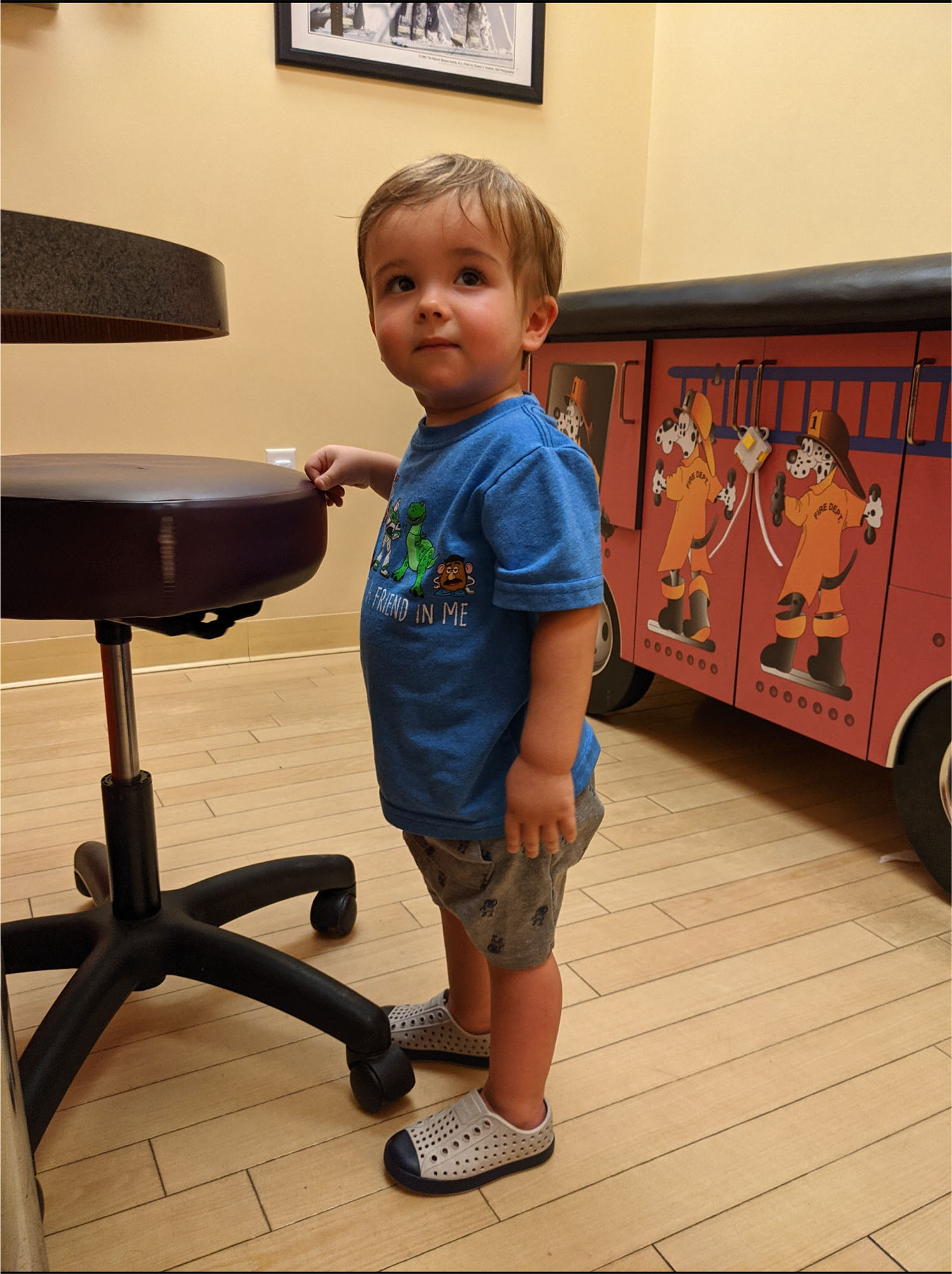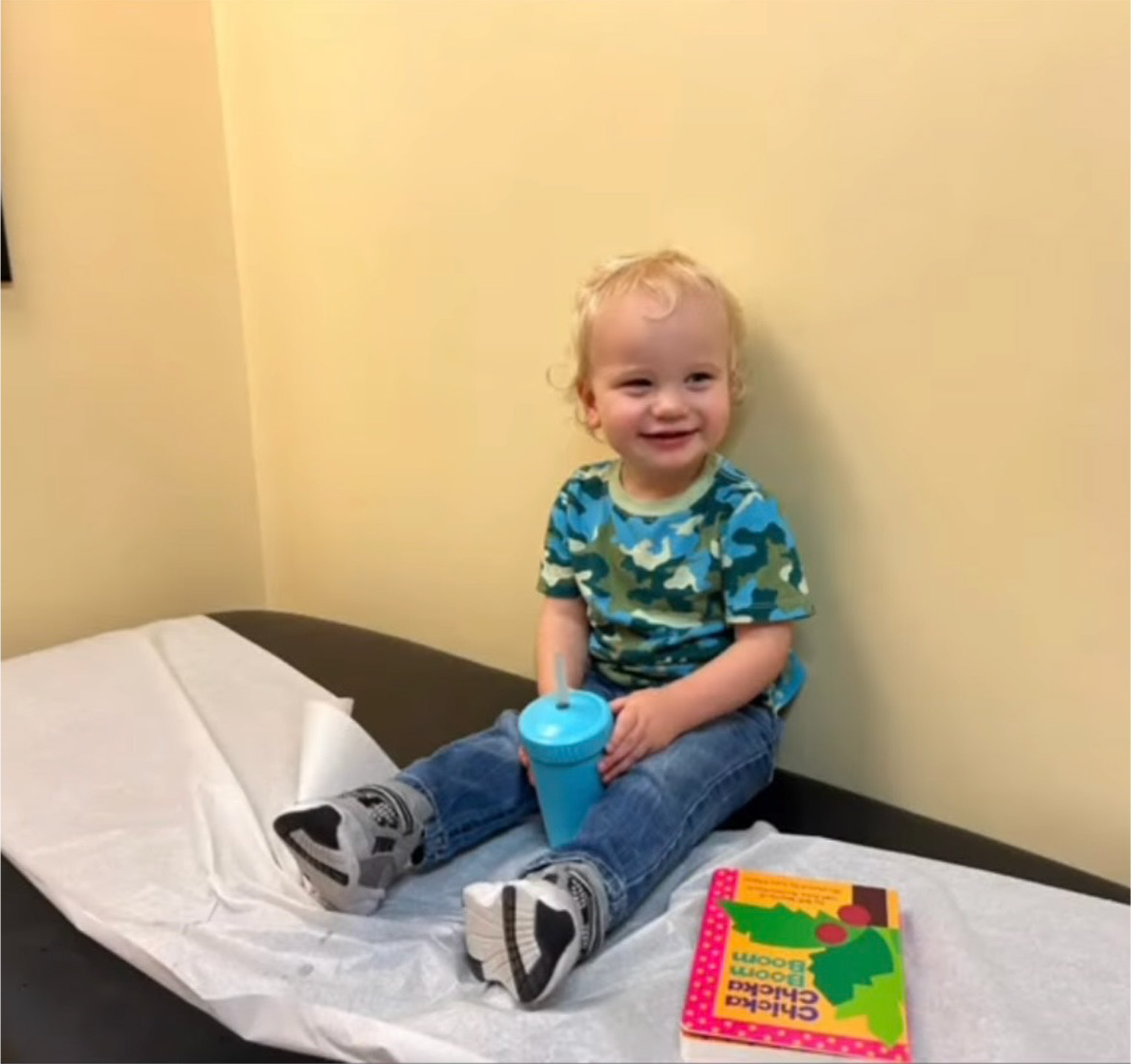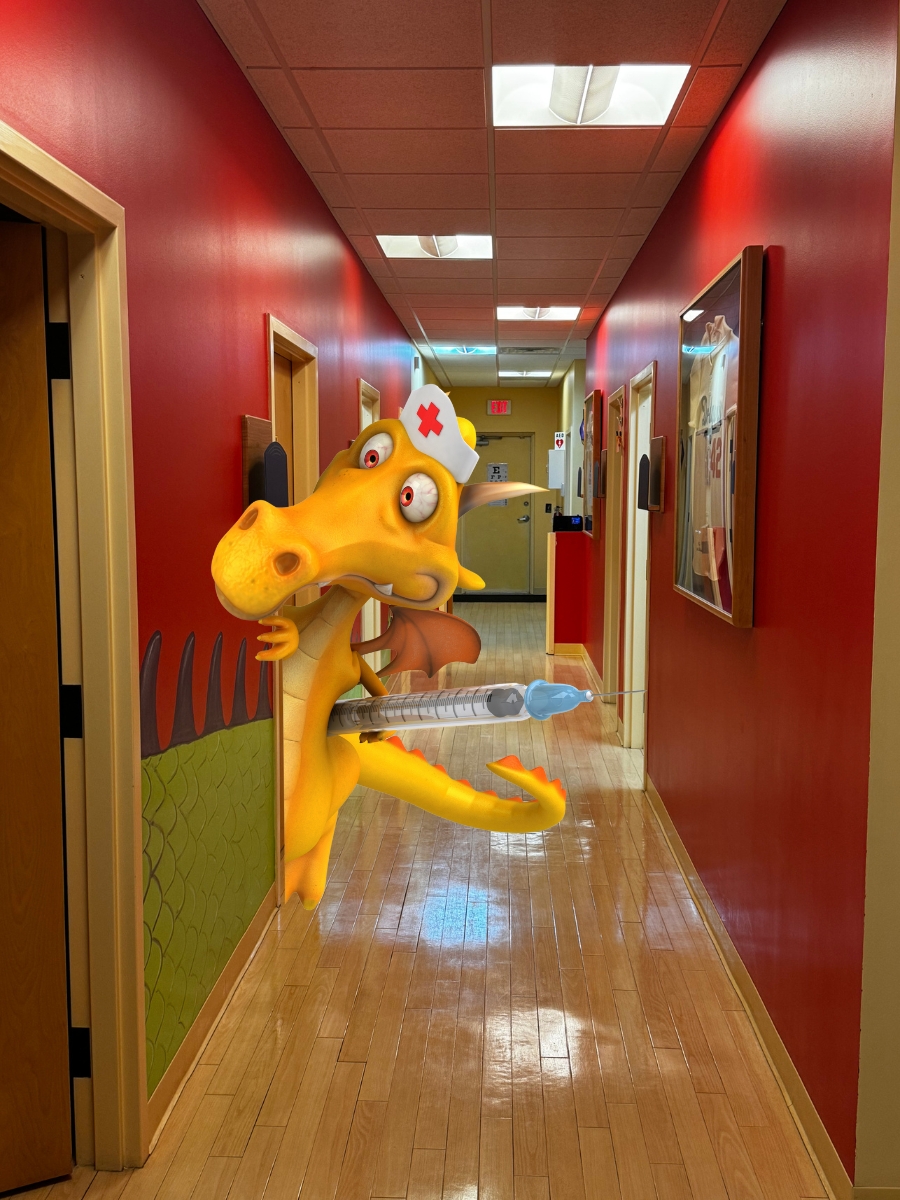Frequently Asked Questions
Can parents request a specific pediatrician for checkups?
Yes, parents can request a specific pediatrician for their child's well-child checkups at Pediatric Wizards. The practice allows parents to choose their preferred pediatrician to ensure continuity of care and build a trusted relationship between the family and the healthcare provider.
How do pediatricians assess overall health during checkups?
Pediatricians assess a child's overall health during checkups by evaluating growth and development, conducting physical exams, and performing screenings for any underlying medical conditions or developmental delays.
What is the purpose of a well-baby pediatric checkup?
The purpose of a well-baby pediatric checkup is to monitor the growth and development of children, identify any potential health issues early, and provide preventative care to support the overall health and well-being of the child.
Can pediatric checkups identify potential vision problems?
Yes, pediatric checkups can identify potential vision problems. Regular eye exams during well-child visits allow healthcare providers to detect and address any vision issues early on, supporting a child's healthy development.
Can pediatric checkups help with behavioral concerns?
Pediatric checkups can help identify and address behavioral concerns in children. Regular assessments by a pediatrician can detect underlying issues and provide appropriate recommendations or referrals for further evaluation and support.
Can pediatricians provide allergy testing during checkups?
Pediatricians can indeed perform allergy testing during well-child checkups. This allows them to identify any potential allergies your child may have and provide appropriate treatment recommendations.
What is the role of pediatric checkups in preventive care?
Pediatric checkups play a crucial role in preventive care by monitoring a child's growth, identifying potential health issues, and implementing timely interventions to ensure optimal development and well-being.
What vaccinations are typically given during pediatric checkups?
Routine vaccinations given during pediatric checkups typically include immunizations for diseases such as measles, mumps, rubella, polio, hepatitis, and other common childhood illnesses.
Are pediatric checkups necessary for healthy children?
Pediatric checkups are necessary for healthy children to monitor their growth, development, and overall well-being, ensuring any potential issues are identified and addressed early on.
Can pediatric checkups detect developmental delays early?
Yes, regular pediatric checkups can detect developmental delays early. These checkups assess a child's physical, cognitive, and behavioral development, allowing healthcare providers to identify any potential issues and implement early interventions.
What is the ideal age for first pediatric checkup after birth?
The ideal age for the first pediatric checkup after birth is within the first few days, typically 3-5 days, to ensure the newborn's health and development are on track.
What questions should parents ask during pediatric checkups?
Parents should ask their pediatrician questions about their child's growth, development, immunizations, and any health concerns during pediatric checkups.
Do pediatricians provide guidance on nutrition during checkups?
Pediatricians do provide guidance on nutrition during well-child checkups, offering recommendations on a balanced diet, portion sizes, and nutritional needs based on the child's age and development.
Are there any age-specific pediatric checkup requirements?
Yes, there are age-specific pediatric checkup requirements to ensure children's optimal health and development at different stages. These checkups cover growth monitoring, developmental milestones, and preventive care tailored to each age group.
Are pediatric checkups covered by health insurance plans?
Many health insurance plans cover pediatric checkups, as regular well-child visits are considered an essential part of preventive healthcare for children.
Do pediatric checkups include hearing tests for children?
Yes, pediatric checkups typically include hearing tests for children to ensure their hearing development is on track.
How often should newborns have pediatric checkups in the first year?
Newborns should have pediatric checkups approximately 6-8 times in the first year, including visits at birth, 1-2 weeks, 1 month, 2 months, 4 months, 6 months, 9 months, and 12 months to monitor their growth and development.
What is the recommended schedule for pediatric checkups during childhood?
The recommended schedule for pediatric checkups during childhood includes regular well-child visits at ages 2 weeks, 2 months, 4 months, 6 months, 9 months, 12 months, 15 months, 18 months, 2 years, and then annually thereafter.
How often should school-age children have pediatric checkups?
School-age children should have pediatric checkups once a year to monitor their growth, development, and overall health.
What should parents expect during pediatric checkups?
During pediatric checkups, parents can expect a comprehensive assessment of their child's growth, development, and overall health, including physical examinations, vaccinations, and age-appropriate screenings.
How are pediatric checkups tailored for different ages?
Pediatric checkups are tailored for different ages to address the unique health and developmental needs of children at each stage of growth, ensuring comprehensive care and early detection of any issues.
What common issues are addressed in pediatric checkups?
Pediatric checkups address common issues such as growth and development, vision and hearing, vaccinations, and overall health and well-being to ensure children are meeting developmental milestones and receiving necessary preventive care.
How do pediatricians track growth during checkups?
Pediatricians track growth during checkups by measuring the child's height, weight, and head circumference, and comparing these measurements to growth charts to monitor the child's physical development over time.
What role do parents play in pediatric checkups?
Parents play a crucial role in ensuring their children's well-being by scheduling regular pediatric checkups and actively participating in the healthcare process to support their child's growth and development.
How can parents prepare for pediatric checkups?
Preparing for pediatric checkups involves gathering the child's medical history, writing down any concerns, and bringing a list of questions to discuss with the pediatrician during the appointment.
What follow-up care is needed after checkups?
After well-child checkups, any recommended follow-up care, such as additional screenings, vaccinations, or specialist referrals, will be discussed and scheduled as needed to ensure your child's continued health and development.
How do pediatric checkups support mental health?
Pediatric checkups support mental health by identifying and addressing any developmental or behavioral concerns early on, helping children maintain a healthy emotional well-being and positive self-image as they grow.
What are the signs a child needs a checkup?
Signs a child needs a checkup include changes in growth, behavior, or development, persistent symptoms, or concerns from parents or caregivers. Regular well-child visits are important for monitoring a child's health and identifying any issues early.
How do pediatricians communicate with children during checkups?
Pediatricians communicate with children during checkups by using age-appropriate language, engaging them in play-based activities, and building a friendly rapport to make the experience comfortable and enjoyable.
What resources are available for pediatric checkup questions?
Pediatric Wizards offers a variety of resources to address pediatric checkup questions, including an informative website, a team of experienced pediatric professionals, and a patient portal for convenient access to information and appointment scheduling.









